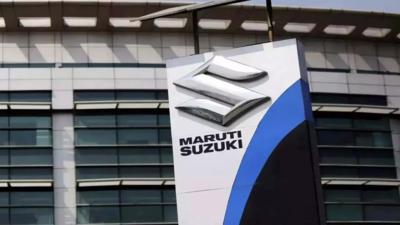Maruti Suzuki Halts New Plant Amid Market Slowdown
NEW DELHI: In a significant move reflecting the current state of India's automobile sector, Maruti Suzuki has decided to slow down its land acquisition for a proposed Rs 35,000-crore second factory in Gujarat. This decision comes in the wake of sluggish car sales growth, with the factory originally intended to boost the company's production capacity to four million units by 2030-31.

"No hurry," says Maruti Chairman - R C Bhargava, Maruti's chairman, emphasized that the company is not in a rush to expand its production capacity given the current market growth of only 1-2%. He highlighted that Maruti has sufficient expansion activities underway in its existing plants in Haryana and Gujarat, making the immediate need for a second Gujarat plant unnecessary.
Industry-Wide Concerns Over Capacity and Demand
The cautious stance adopted by India's leading car manufacturer underscores broader apprehensions within the automobile industry. After a post-Covid surge, the sector is now grappling with challenges such as rising vehicle prices and economic uncertainties, which are deterring potential buyers.

Call for Government Support - Bhargava advocates for the creation of an affordable entry-level car segment, smaller than the Alto, to encourage two-wheeler users to transition to cars. He cited the example of Japan's kei cars, which benefited from favorable regulations and taxes, as a model for India to emulate.
Looking Ahead: Challenges and Opportunities
Developing a highly affordable mini car presents significant challenges, even for a mass-market leader like Maruti. Bhargava stressed the need for government support to make such vehicles viable, pointing out the rising costs due to safety and emission mandates. Meanwhile, the recent income tax relief in the Union Budget is unlikely to spur car sales, as consumers prioritize other expenditures over vehicle purchases.









Comments